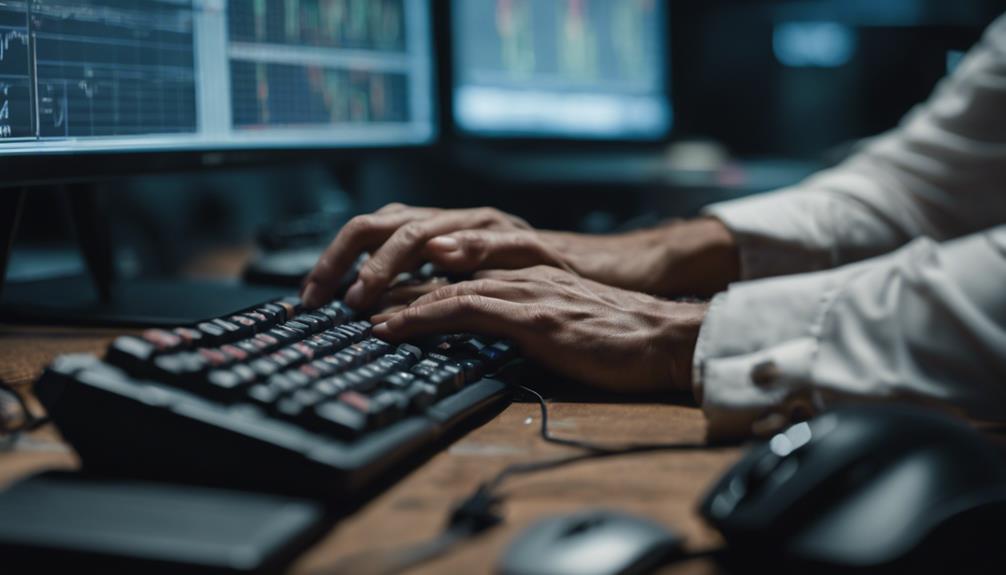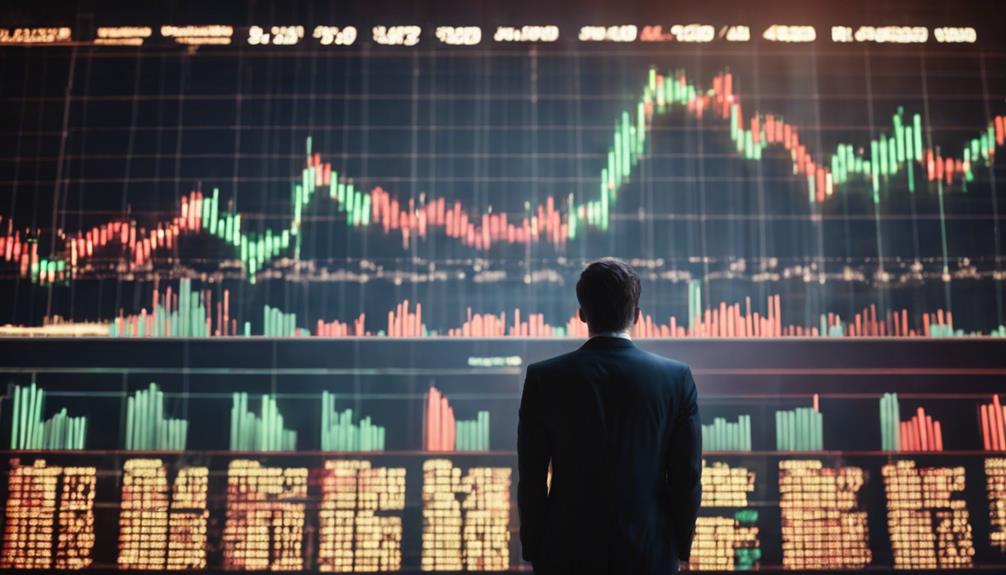In the fast-paced world of forex trading, controlling your feelings is like sailing in a rough sea. Staying calm when things get crazy, making smart choices, and not giving in to impulsive actions can make a big difference in how well you do in the market.
But how can you really learn to do this? By understanding how your mind works and using smart trading plans, you can unlock your full potential as a forex trader.
Understanding Emotional Triggers

Understanding Emotional Triggers is really important in Forex trading. It can make a big difference in whether a trader succeeds or fails. Emotional triggers are things that make us feel a certain way and can affect our decisions. It's crucial to know what triggers our emotions so we can control them better.
Being emotionally self-aware means knowing how we feel and why. This helps us understand how our emotions can impact our choices. Traders who are emotionally self-aware can separate logical market analysis from emotional reactions. This skill is key to making smart decisions, especially when the market is unpredictable.
In Forex trading, recognizing triggers and being emotionally self-aware are essential for success. By understanding and managing our emotional triggers, we can be more resilient, stay focused, and make better decisions. This can increase our chances of making profitable trades.
Overcoming Fear and Greed
To do well in Forex trading, traders need to deal with and beat the strong emotions of fear and greed that can influence decisions in the financial markets. Managing these intense feelings is important. Here are some simple strategies to help traders overcome fear and greed:
- Stay Focused: Pay attention to what's happening now to avoid getting caught up in fear or greed from past experiences.
- Set Clear Goals: Make specific, reachable goals to keep yourself on track and avoid making sudden decisions driven by fear or greed.
- Use Stop-Loss Orders: Set up stop-loss orders to limit potential losses and prevent emotions from taking over when the market gets turbulent.
- Get Help and Learn: Connect with a trading group or mentor for valuable advice and support to help you handle the emotional challenges of fear and greed.
Developing Discipline and Patience

Successful forex traders need to be disciplined and patient. This means they need to control their emotions like fear and greed. They also need to stay focused and not make quick decisions. Discipline helps traders stick to their strategies and avoid making impulsive choices, even when the market is turbulent. Patience is important because it helps traders wait for the right opportunities instead of rushing into trades.
Consistency is key in trading. This means following a well-planned trading strategy, managing risks properly, and not letting emotions dictate decisions. By being consistent, traders can create a reliable framework that reduces the impact of emotional trading.
Managing Stress and Anxiety
When trading in forex, it's important to manage stress and anxiety well so you can think clearly and make smart decisions when the market changes. Traders need to learn how to handle stress and control anxiety to deal with the ups and downs of financial markets. Here are some simple ways to help traders manage stress and anxiety:
- Stay Present: Try deep breathing or meditation to help you focus during trading.
- Take Care of Yourself: Exercise, eat well, and get enough sleep to feel better and handle stress.
- Plan for Risks: Having a strategy to manage risks can make you feel more in control and less anxious about potential losses.
- Get Support: It's good to have people you can talk to for advice and support when things get tough.
Cultivating Confidence and Resilience

Building confidence and resilience in forex trading is about having a strong mindset and being proactive when facing challenges in the market. It's important for traders to know themselves well, understanding what they're good at and where they need to improve in order to trade successfully. By recognizing how they feel and react to market changes, traders can stay level-headed and think clearly, which is key to doing well in forex trading.
To boost confidence, traders should set achievable goals, keep learning, and practice their skills regularly. It's important to focus on personal progress instead of comparing themselves to others, which can help them feel proud of their achievements and build their self-esteem. It's also important to stay strong in the face of losses or setbacks. By seeing failures as chances to learn and staying committed to their long-term goals, traders can come back stronger and more determined.